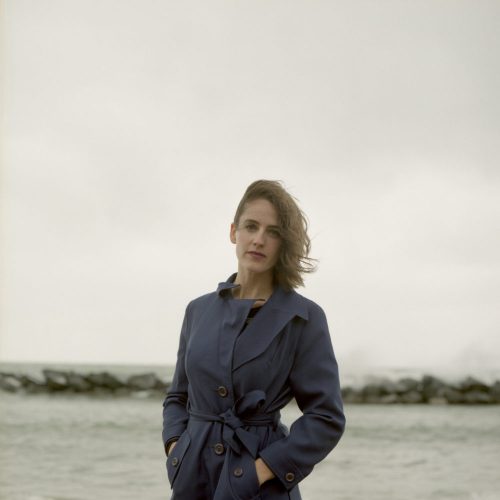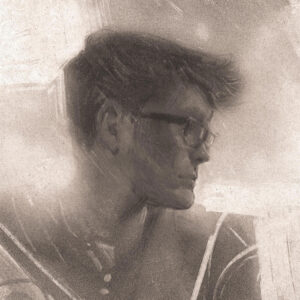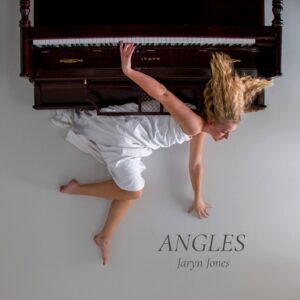Jenny Berkel lays down a series of fresh, urgent images in her new release “You Think You’re Like the Rain.” The track swings in swirls of blue and smudges of indigo, conducting images of drowsy rain and leaky facuets and water that has a hitch in its breath. “You Think You’re Like the Rain” has a casual desperation to it, as the narrator begs their — what? friend? lover? family member? — to reimagine their role in her life. Drop the martyr complex, the narrator of the song seems to insist, albeit in loving terms. Look at me in the eyes and see how important you are to me. At its center, this seems to be a song about emotional labor: about the work it takes to love and be loved, and the ways in which we justify and condemn that effort.
Stop by the edge of the afternoon / with the words that you sunk in a quiet room
It’s no surprise that Jenny Berkel has a reputation not just for vivid and urgent music, but for powerful written poetry. Berkel has a voice that sings both out loud and on the page. Her work is playful and detailed and wonderfully strange – and her song “You Think You’re Like the Rain” is no exception. The narrator worries that the subject of her attention sees themselves as a negative force in her life, “over and over falling and making me sad.” This comparison seems to allude to the ways in which we pull away from the people we love as a mode of self punishment — and how this ultimately hurts the people you care about instead of protecting them. It’s like saying, “I’m hurting you, so I’m going to leave” instead of “I’m hurting you, so I’m going to change my behavior.”
These are the sounds left from leaving/You think you’re like the rain/Over and over falling and making me sad
Berkel’s clear, ringing voice delivers the story with punch. At times I wish she’d leaned into the emotion more, but the distanced approach does lend itself to more enunciated lyrics. “You Think You’re Like the Rain” is an intimate look into a feeling many people are familiar with. It’s a story steeped in both loss and longing. The song calls attention to the excuses we use to hold ourselves at a distance from one another.
But I know you’re not the rain/Or maybe you’re everything/I wish you wouldn’t be sad
The two minutes and thirty nine seconds of the song wrap their arms around an enormous feeling and press it down like clay into something contained. Something attentive. It’s like a hyper detailed dollhouse, with each inch-long window painted, each chair tucked beneath the tiny table, perfect miniature posters pinned to the wall. It’s an entire world, tucked up and breathing in the bounds of a song. Then again, that’s what poets do. And if there’s one thing this song makes clear, it’s that Jenny Berkel is one hell of a poet.







